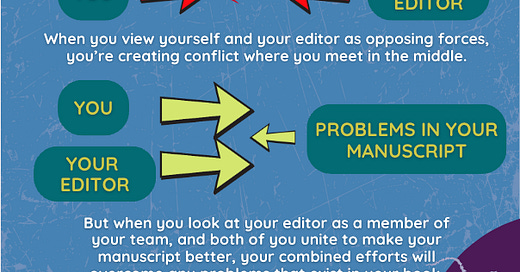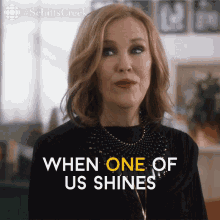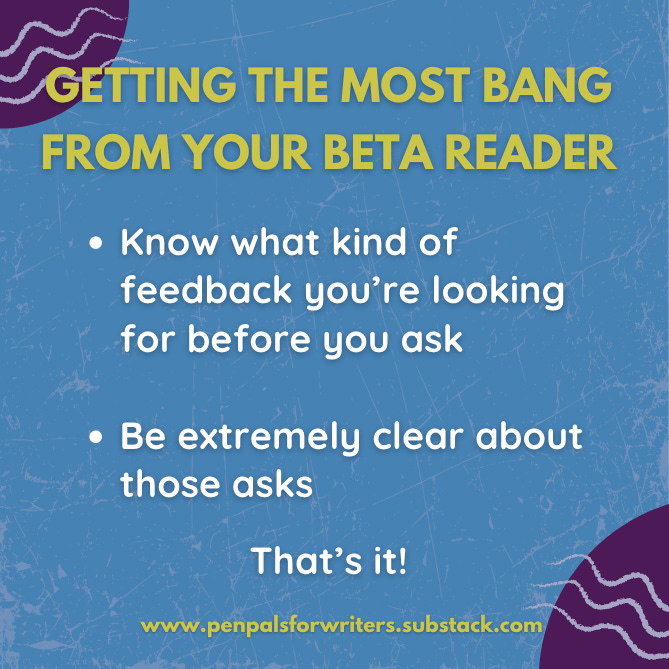Dear Pen Pals,
How do I separate my feelings about my book from the critical feedback I receive from my editor?
Sincerely,
Too Sensitive
Dear Too Sensitive,
You’ve hatched your book baby, fed it, and kept it safe for so long, all on your own. For a lot of writers, sending it to a beta reader or editor for feedback is the first time you’re watching it leave the nest, nervously wondering whether it will spread its wings and take flight… or plummet to the ground with a SPLAT.
It’s no wonder that we’re all sensitive about our book’s reception, because after putting that much work into it, we feel like any failure on the part of the book is a failure that reflects on us personally—and I’m including myself in that statement, because even though I’ve edited hundreds of client manuscripts, I’m not exempt here. Sometimes criticism just plain stings, and there’s no way around it. But before we go any further, I want to share a tidbit that every writer needs to keep in mind during the editing process:
You and your editor are on the same team.
You and your editor share a common goal: you both want to make your book the best it can possibly be. There is no YOU vs. EDITOR here—there’s only YOU AND YOUR EDITOR vs. AREAS OF IMPROVEMENT IN YOUR BOOK.
With this in mind, remember…
Critique ≠ Personal Attack
Your editor is there to do one job, and that job is making sure your book is the best it can be. Their objective is to give you their honest opinion and to help you get your book to the next level. If you’re in traditional publishing, then you already know your book will need to meet a certain standard and pass through many hands and stages of revision before it’s ready to be published. This is all part of the process, and each step is bringing your book closer to the finish line.
If you sought out a freelance editor, this also means you are aware to some extent that your book isn’t perfect. You already know it could use improvement. I’ll even bet that some of the edits they’ve suggested aren’t a total surprise to you.
Their critiques are an opportunity for you to make your book better.
Receiving a critique is like seeing a big flag waving at you, inviting you to say to yourself, “Hey, a reader didn’t connect with this part of my book in the way I intended. Why do I think that is?”
From here, you could allow your emotional response to get the better of you, dig in your heels, and tell yourself you’re right—as the author it’s certainly within your power (and right) to do so. But what if other readers feel the same way? Wouldn’t you be missing out on an opportunity to make your book better?
If you’ve been following us for more than five seconds you’ll know that I’m a huge proponent of constantly asking yourself WHY throughout your writing process, and this is no different. If you don’t agree with your editor’s feedback, take a step back and ask yourself: Why do I feel this way?
What about it is sitting wrong with you?
Are you having a strong anxious/emotional reaction, or are you confident that the specific critique your editor gave isn't right for your book?
If the latter, do you have a better suggestion that feels more aligned with your understanding of the character?
That last one, by the way? That’s teamwork.
Now, are there people out there who will tear down your book or give mean, nonconstructive feedback? Yes, absolutely, because the world is far from perfect. What you can do to protect yourself from this varies from situation to situation, especially once the book is out in the world, but when you’re still in the writing and editing process, what you can do is be selective about who you hand the red pen to, and set limitations on how you’d like that red pen to be used.
When sending your book to beta readers, be clear with them about exactly the type of feedback you’re looking for. Are you trying to spice up the romantic relationship between two of your characters? Ask them to focus on that. Are you trying to be sure you’re sending clear, concise information and manageable action steps in your personal development book? Make sure your editor or reader knows that this is a goal/concern of yours. If they have a focus area, they’ll be able to better meet your expectations.
Okay but even if I know all of this, what do I do when feedback still hurts?
Lovingly, you gotta learn to deal with it. Feedback—and more specifically, feedback you don’t always want to hear—is part of the gig. Having an emotional response to a critique is normal, and it’s perfectly okay to feel some kind of way about it.
What comes next, though, is up to you.
When you receive an edit letter or a piece of commentary that gets your hackles up, the biggest piece of advice I can give you is to take a step back instead of reacting. If you’re in person, on a call, or need to respond immediately for any reason, then practice this line:
“Thank you for the feedback. I need to sit with this for a little bit and think about how I want to proceed. Is it okay if I come to you with questions in a day or two?”
Sometimes when we receive editorial notes we immediately have a lightbulb moment, thinking, Yes! They’re right! That’s exactly what I need to do here! It all makes sense now! But sometimes, we need to let the information absorb so we can process it and see a way forward—especially when that feedback is something other than “Wow this is perfect, here’s a crap ton of money and accolades!”

Go for a walk. Journal about it. Make a list of potential changes you’ll need to make to your manuscript. Highlight specific instances of feedback that are giving you an emotional reaction and refer back to the section above about asking yourself why.
More than anything, give yourself some time. Anxiety can make us feel like we are straight-up under attack, but when those emotions are strong, we need time and space to emotionally regulate so we can see clearly again before we tackle the manuscript for real. If, in a few days, you still don’t agree with the feedback, you’ll be better equipped to talk about it with your editor and enter into a productive discussion—so long as you remember they are on your team.
News from the other side
As an editor, I can confirm that it often really really sucks having to give negative feedback. There’s no schadenfreude here, no version of me that is sitting at my computer cackling maniacally about giving my authors bad news and making them upset.
There’s often a sinking sensation in the pit of my stomach when I know what I’m saying to a writer is going to be hard to hear, and a deep understanding that fixing the problem is going to require a significant amount of work. (I’m a recovering people pleaser—I certainly chose a really difficult profession for myself, didn’t I? 😂)
A good editor should be showing you what you did right as well as what’s not working.
A good editor knows how to present suggestions in a way that make it clear that you, the author, are the one in the driver’s seat and that they are simply navigating, informing you of roadblocks as they help you find an alternate route.
A good editor will be willing to talk it out and work with you to find a solution that addresses their concerns while also staying true to the vision you have as a writer.
An emotionally mature author understands all of this, and also understands that the editor-writer relationship is a partnership. It’s not always going to be easy, but if you go into the situation with awareness, acceptance of your own emotions, and readiness to work as a team, it’ll be that much easier to set aside the hurt and focus on the real priority: Your book.
You’ve got this, pals. I believe in you.
Sincerely,
P.S. I got some very exciting news from my own editor last week, so consider this your vague post to keep an eye on my socials over the next week or so! 👀 👀










Yes! I have long maintained that one of the hats and editor wears is therapist. It's important to understand that we all want the same thing: The publication (whatever that means) of the best book possible.